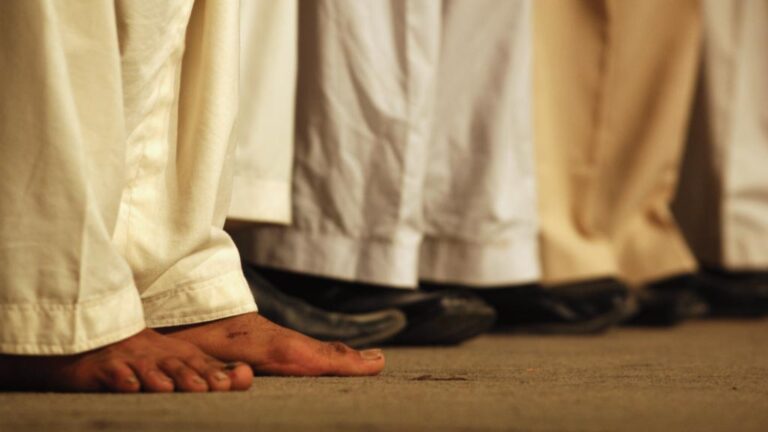In 2017 the Afghan government introduced a new Criminal Code explicitly addressing the under-reported issue of bacha bazi. The practice involves older men taking advantage of young boys in vulnerable situations and has increased since the fall of the Taliban regime. Although introducing new laws banning bacha bazi is a welcome move, the issue extends far beyond national laws.
Domestic violence, illiteracy and poverty. In tandem, these factors increase vulnerability to abuse and exploitation, and are often integral in the lives of bacha bazi victims. Bacha bazi is a neglected human rights issue that is causing anguish among the most vulnerable children in Afghanistan. The practice involves young boys, bacha bereesh (bearless boys), commonly aged 10-18, who are taken in possession of older male adults. The boys are usually brought to parties, wedding ceremonies and other private events, sometimes dressed in women’s clothes, and forced to dance and entertain a male audience. However, the practice varies across the country. After the ceremonies, the boys are often taken to private houses where they are raped and sexually abused. Due to threats, violence and economic dependency, the boys often face difficulties leaving the iron grip of their abuser.
According to the Afghanistan Independent Human Rights Commission (AIHRC), bacha bazi falls under the definition of trafficking in person according to the Palermo Protocol on trafficking in persons and has been criticised for being a severe human rights offence. Trafficking in person, or human trafficking, includes crimes such as forced labour, sex trafficking and unlawful recruitment of child soldiers. Although the issue is starting to gain political attention, it remains to be adequately addressed by policymakers and community members alike.
Turning a blind eye to illegality
Afghanistan’s legal system is complex and consists of three parallel regulatory frameworks: statutory, customary and religious. Due to the diversity in the legal system, there are various norms and mechanisms that exist to settle disputes. The result of this has been impunity and inconsistency in the application of national laws. During the Afghan civil war, the Taliban condemned bacha bazi as it was considered to be un-Islamic and an offence to Sharia Law. As a result, the practice was punishable by death up until the US invasion in 2001. Although the prospects of some marginalised groups, including women, improved after the overthrow of the Taliban regime, the prevalence of bacha bazi increased. Their demise left a power vacuum in which the perpetrators of bacha bazi were no longer facing the same risk of harsh reprisals.
After the fall of the Taliban regime, there was little latitude in the national law to address bacha bazi, although child abuse remained illegal. In fact, bacha bazi was not directly addressed in the 1978 Afghan Criminal Code, rendering prosecution of the practice nearly impossible. Even though the Criminal Code contained regulations on pederasty, degradation and rape, this was not enough to address the practice in its entirety. The silence and taboo surrounding the violations made it even more difficult to tackle the issue. As vested power interests came to dominate the political landscape, government complicity in the practice quickly became a problem. According to the AIHRC, most people who engage in bacha bazi have high-level connections within law enforcement and among prosecutors and judges, enabling them to dodge the not-so-long arm of the law.
Despite this bleak picture, things may be changing as political attention seems to be increasing. In October 2016, the president Ashraf Ghani ordered an investigation on institutionalised sexual abuse of children. The investigation resulted in the arrest of five Afghan National Army (ANA) soldiers who were accused of sexually abusing a boy, possibly in bacha bazi. In 2017, a district chief of police and six members of ANA were arrested on the same grounds. However, only two of the ANA soldiers arrested in 2016 were sentenced, while all involved in the case from 2017 were released.

Life after bacha bazi
When bacha bereesh are considered too old, usually around the age of nineteen or when their beard begins to show, they are released by their owners and simply expected to carry on with their lives. However, the psychological damage caused by years of sexual abuse and social isolation makes it difficult for many to settle into a normal life. Having been subjected to sexual assault and harassment at a young age often result in lifelong trauma. After their release, many boys lack networks and social support. This, in combination with a low level of schooling, limits the options that the boys have upon returning to society. Due to difficulties finding jobs, some victims of bacha bazi turn to be abusers within the practice themselves, resulting in a vicious cycle of abuse. Other boys turn to drugs and alcohol as a coping mechanism.
Victims are often isolated from society, both during and after their release. The practice is reportedly occurring in powerful and influential circles which makes it difficult for victims and their families to seek assistance, especially for those boys who become well known in bacha bazi circles. When seeking assistance victims have reportedly received threats, punishments and beatings and have even in some cases been returned to their abusers. The European Asylum Support Office reported on a boy who ran away to Iran for two years, but when he returned to his village he was recaptured by armed men who returned him into bacha bazi.
Toward future horizons
According to human rights groups, bacha bazi is largely a result of rigid gender segregation in the country. The segregation is reflected in the infamous saying “women are for children, boys are for pleasure”. Although important steps were taken in 2017 by adopting a new Criminal Code, which explicitly takes a stance against human trafficking and bacha bazi, more efforts may be needed. Detrimental power structures still constitute a hinder. Social protection networks are still lacking. Nevertheless, a brighter future for Afghanistan’s boys will be possible when impunity and inequalities are countervailed.


